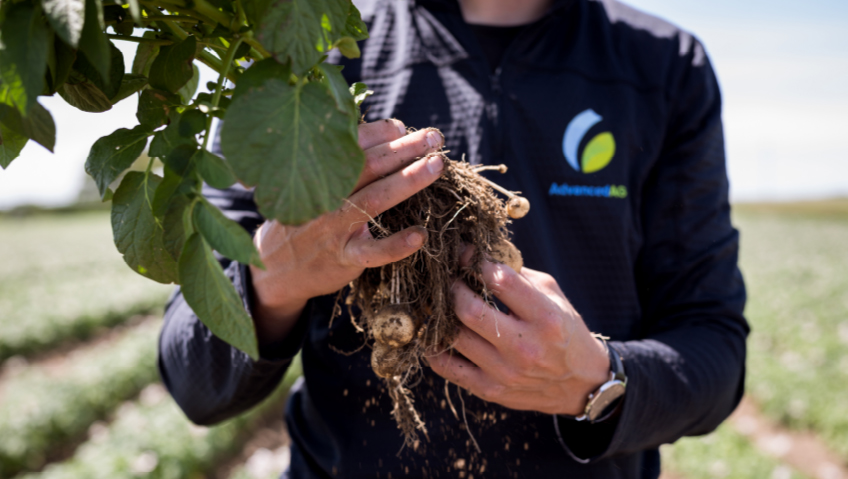Organic production systems preserve biodiversity, help mitigate climate change, and ensure that there is respect for people and the planet by promoting fair and equitable access to resources. Since 1991, Ecocert has been at the forefront of encouraging the adoption of certified organic principles by supporting stakeholders in their transformations to sustainability.
Ecocert has the knowledge, expertise, and proven processes to be a trusted certification partner, and with more than 80,000 clients worldwide who share this belief in sustainable systems of production and consumption, its immense positive impact continues to grow.
For the good of Canada
Ecocert Canada was founded in 1994 as a proud subsidiary of the Ecocert group. A woman-owned organization, it shares the same dedication to models of fairness, equity, and sustainability and supports more than 5,000 Canadian companies in their sustainable transformations.
As Fabien Jouve, Division Manager of Client Relations with Ecocert Canada explains, “The mission at Ecocert is to support companies and people putting in place good practices for the planet and its people, to help our partners promote the ‘good stuff’—the good products and the good things they’re doing while they’re making that product.”
Ecocert works tirelessly to improve environmental and social outcomes through its certification, consultation, and training services. As a third-party auditor and certification body, its origin was in organic certification but today there are more than 150 different certifications offered, bringing the highest level of standards to clients in the agri-food, cosmetics, textiles, forestry, and homecare sectors.
“It goes well beyond organic,” says Jouve. “Organic is our core, it is our identity, but some people want to go beyond that to put in regenerative practices that go beyond organic. We have those options. There are many services that Ecocert can provide for the same mission, to support companies putting in place good practices for the planet and the people.”
Some of the leading certifications offered are Organic Agriculture Canada under the Canadian Organic Regime (COR); Global Good Agriculture Practices (GLOBAL G.A.P.); and Hazard Analysis Critical Control Point (HACCP); Fair Trade certification with Fair for Life (FFL); as well as regenerative agriculture, carbon neutrality, corporate social responsibility, and many others.
Driven by expertise
As subject-matter experts in organic farming, fair trade, sustainable agriculture, food quality and safety, corporate social responsibility, biodiversity, and climate change, the team at Ecocert Canada offers start-to-finish support.
“We are here to make it happen, to deliver support. We are part of an ecosystem,” says Jouve. The ecosystem begins with front-loading clients with information and resources to ensure their understanding of the requirements. It starts with navigating the available certifications to identify which will best facilitate the achievement of the client’s sustainability goals.
“We deliver a lot of information before even having a consultation with the client. That’s the approach,” says Jouve. “We do not have any application fees; people call us, we inform them and then they choose to engage, to be involved in the path that they find most suitable for their products and their processes.”
Ecocert Canada has a wealth of resources, including videos and training modules, to bring clients on board and engage them from the outset. Throughout the process, the organization promises exceptional customer support to ensure success. “If they have any questions, any technical questions during the process, we help them. We make sure that all the inputs they use are compliant, that they are doing all the documentary evaluation, so when all of that is verified, we can go to audit the client,” explains Jouve, and only then is the client invoiced for services rendered.
Invoices are issued when Ecocert Canada is confident that the client is ready. As Jouve states, “That’s part of the difference we bring to the sector. When people commit to making this change, we make sure that we support them well.”
Guided by values
From the preservation and optimal management of available energy and natural resources to improved product quality, innovation, safety, and outcomes for end users, Ecocert Canada and its clients play a collective role in addressing the social, environmental, and economic challenges facing society today to ensure a brighter tomorrow for future generations.
Further to encouraging and supporting its clients to be agents for social and environmental change through the certification process, Ecocert Canada lives its values, which is why its priorities align. For instance, 100 percent of the organization’s carbon emissions are offset annually, and its headquarters are in an energy-positive building.
As Jouve explains, this makes for an easy onboarding process. “Usually, the people that contact us are in the same state of mind; we already align on our values. They want the good for themselves, for their employees, for their customers, so it’s often very easy because we share our values with the partners that we have.”
Collaboration for good
Through its work, Ecocert addresses 14 out of 17 of the United Nations’ Sustainable Development Goals and this would not be possible without the many partners and stakeholders working together to be the change. Just as sustainability is collective in its very nature, so too is Ecocert Canada. The organization works in partnership with different Ecocert branches around the world: organizations like the Canada Organic Trade Association (COTA), provincial organic organizations, the government, and other similarly focused stakeholders who are dedicated to advancing a sustainable lifestyle and future.
Jouve explains how thinking globally but acting locally serves Ecocert’s mission: “It’s very important to be local but it’s a strength that we’re part of an international web so we can deliver state-of-the-art service to every client in Canada and help Canadian companies to export and make their values shine well beyond Canada.”
Working with farmers
Together with its partners, Ecocert not only supports clients with information and expertise but also serves as a bridge to funding opportunities. The On-Farm Climate Action Fund (OFCAF) is a collaborative effort with COTA to combat climate change by providing organic farmers with technical and financial support to implement beneficial management practices (BMPs) for nitrogen management and cover crops.
The funding, which is available through Agriculture and Agri-Food Canada’s Agriculture Climate Solutions program, encourages farmers to adopt BMPs such as utilizing cover crops and increasing legume production in crop rotations to reduce greenhouse gas emissions.
Through this fund, Jouve notes, “We are able to redistribute money to organic farmers across Canada with the condition that they have made new actions to tackle climate change. For example, they have put in place different cultures, rotations; they have put in place seeded legumes for example, [elements] that help to tackle climate change, so we are partners to those farmers.”
While there are many organizations like Ecocert working together to promote sustainable production and consumption systems, at the heart of these efforts are the farmers, the operators, and the processors who are making the changes necessary to be a part of the collective effort to leave the planet better than they found it. As this mindset continues to grow in the minds of producers and consumers, these changes are reflected in the greater market, and while there has been growth in the organics sector, it still represents only a small fraction of overall sales, which means there is still greater opportunity and potential.
“If you look at the overall share of the Canadian food market, [organic is] such a tiny share. It’s less than five percent of the Canadian food basket,” says Jouve. “There’s still so much that needs to be done.”
Whether that means continuing to advance organic production, the protection of biodiversity, fair trade, food safety and quality, or one of the other certification areas Ecocert specializes in, there is still a long road ahead, and there are still countless ways companies and individuals in Canada, with the support of Ecocert, can improve social and environmental outcomes for living ecosystems and their inhabitants.






